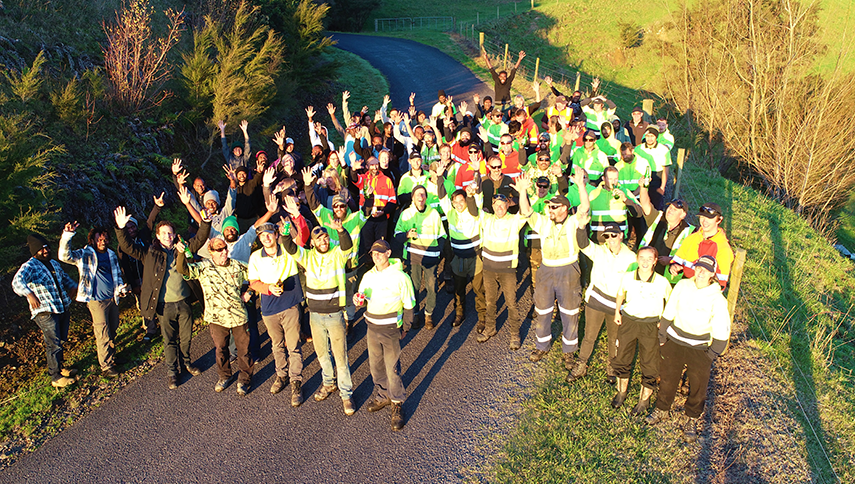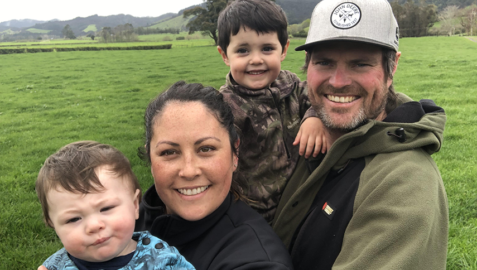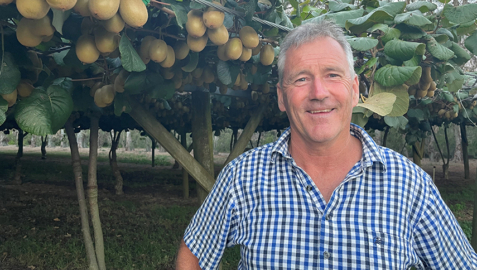
Baygold sowing seeds of wellbeing
Module Overview
Focusing on the core values of kindness and care is an integral part of large-scale kiwifruit operation Baygold’s wellbeing culture.
Baygold general manager of engagement and culture Paul Fawcett says it’s about ensuring workers are being cared for in a way that’s appropriate to their work and life.
“If you are doing right by people, they will do right by you,” he says.
Baygold, which is based in the Bay of Plenty, has around 90 permanent staff and 70 RSE (recognised seasonal employees).
One of the many things Baygold does to help look after its workers is offer health and life insurance, as well as mandatory medical checks for machine operators and voluntary ones for everybody else.
“The physical checks are carried out on site so it’s easy for workers,” says Paul.
Bi-annual skin checks are also offered for employees who work outdoors.
Mental health top of mind
And it’s not just physical health checks that are important – mental health is top of mind, as well.
“We have Vitae’s EAP (Employee Assistance Programme) service available on-site for workers to access if they need to talk about anything.
“We also have one of our team members in the construction team who runs weekly get togethers for the guys to talk about mental health and wellbeing,” he says.
“At the heart, it’s about understanding that we can say we care, but we have to show we care by actually doing things for the team.”
Monthly team meetings also help workers stay connected and share any concerns they have.
“They are a great opportunity to get together and have a yak and some snacks and connect.
“We have great managers and supervisors who listen to people and are looking out for areas of concern.”
Labour shortage hits hard
New Zealand’s closed borders due to the COVID-19 pandemic has resulted in seasonal labour shortages in the horticulture industry.
“With no backpackers and casual labour coming in, we are fighting for more staff daily and are in constant recruitment mode at the moment,” Paul says.
Baygold currently has 70 RSE workers helping fill the gaps, and looking after their wellbeing is important.
“We provide evening meals to make sure they are eating well. This helps their productivity and energy levels and we also have on-site dental checks and nutrition programmes.”
He says one of the key challenges at the moment is avoiding fatigue.
“Because of staffing issues, it’s important to keep on top of people’s hours to make sure they aren’t doing too many and getting fatigued and burnt out.
“If people work more than 60 hours a week, they can’t function so that’s the maximum we encourage people to not go over.”
Adapting and collaboration key
Paul says it’s important to be able to adapt in challenging and constantly changing situations.
“We’ve learnt how to adapt into alert level settings, and we understand what we need to do to operate, whatever situation arises.”
He describes the horticulture industry as resilient.
“We’ve been through [the bacterial disease] PSA and it crippled the industry and took its toll, but you have to endure and work through challenges. The industry is extremely collaborative and working to together is key.”
He says having a positive mindset helps in difficult times.
“You need to choose how you frame things and have a positive outlook. Your mindset is a key dynamic to ensure that outcomes are achieved.”
Paul says he personally deals with stress and lockdowns by making sure he exercises regularly and gets out of the house.
“I’ve learnt to be more structured when working from home and that’s helped a lot,” he says.
“We don’t get everything right, but it’s an intentional journey to improve workplace wellbeing. You have to keep trying and keep moving forward.”


